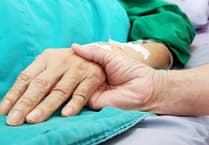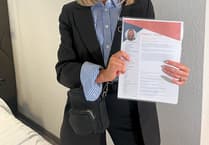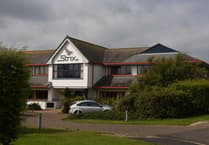The episode follows a BBC journalist and donor-conceived person, Tink Llewellyn, as she delves into various perspectives on the matter and touches on how 2023 and donor anonymity laws will affect donor-conceived people and donors alike.
In 2005 a law came into effect with respect to sperm donation.
It meant that once donor-conceived people in the UK reach the age of 18, they are legally allowed to find out the identity of the sperm donor who donated to their parent(s).
This right only applies to individuals born since the law came into effect, so this year is the first year that individuals are able to find out the identity of the sperm donor.
The documentary includes a short clip from Vicki Leach, originally from Douglas, and her wife Lucy Weston, who discuss their criteria for a sperm donor when they tried to conceive a baby.
Vicki, who has lived in the UK since university said: ‘We were approached by Tink, who asked us to be part of the show.
‘We wanted to show some other types of families that were going through the process as well.
‘Myself and my partner being a same sex couple, I think they were interested in that and wanted to show that there are different types of families that are looking for sperm donors.’
Vicki told the Independent about her and her partner’s experience of finding a sperm donor.
She said: ‘Before we had even started on the process, some friends of ours, who were a same sex couple as well told us that you can go and look at sperm donors and you can read a bit more about the profiles. Then once we started the process, our clinic gave us a list of sperm banks that they preferred.
‘There were certain things that we had as criteria, so myself and my wife, we couldn’t share the genetics, so we tried to find a sperm donor that was similar to her brown hair and blue eyes.
‘Then you can also see some interesting things like what they do for a living, what type of music they listen to, and that kind of thing.
‘Then we imported the sperm in nitrous oxide tanks from Denmark to the UK.’
Asked how she felt being part of the documentary, Vicki said: ‘I think it’s really important to show there are different types of families and different types of conception as well.
‘Not everyone is fortunate enough to be able to have children naturally, so I think, to be able to explore that as part of the BBC, because they’ve got such a wide reach and show there’s all sorts of conceived children out there with different kinds of families, that’s really important.’
The documentary can be found on BBC iPlayer.




